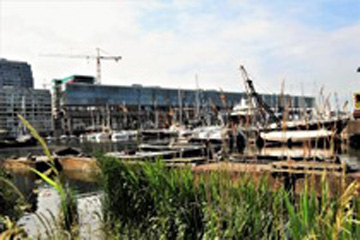
Dutch law is unique in its kind and many international contracts are governed by Dutch law. Legal disputes in the Netherlands have been a hot topic of discussion for many years. This is due to the fact that Dutch legal rights are highly respected and strictly enforced within its borders. As a result, any parties involved in a legal dispute should be aware of their rights under Dutch law before proceeding with their case. In this article, I will provide an overview of some of the key considerations one must take into account when engaging in a legal dispute within the Netherlands. Feel free to reach out to our specialist attorneys in the Netherlands too for all you inquiries.
The first point to consider when entering a legal dispute here is whether or not you require assistance from specialized legal representatives. It’s important to note that even if you feel your claim is straightforward and uncontested, it may still be worthwhile to seek out professional advice as there could be aspects that haven’t yet been considered that may need addressing during proceedings. Furthermore, going through the process alone can lead to costly delays or mistakes being made on both sides, resulting in further complications down the line.
Finally, those looking to resolve their disputes outside of court should be aware of alternative methods such as mediation and arbitration which offer more cost-effective solutions than traditional litigation processes whilst still providing suitable outcomes for all parties involved. Here at MAAK Advocaten, we specialize in offering comprehensive services related to resolving disputes without resorting to lengthy court battles – so don’t hesitate to reach out if you’d like more information!
In conclusion, it’s essential for anyone facing a potential legal battle in the Netherlands to ensure they understand their own rights along with what options they have available to them depending on their individual situation. By taking these points into consideration beforehand, individuals can save themselves time and money while avoiding unnecessary stress throughout the course of any potential future dispute resolutions.
Overview Of Dutch civil Litigation System
The Netherlands has a legal system that is based on Dutch procedural law and civil law, with the Dutch civil courts as main sources of dispute resolution. In cases involving disputes between parties in Dutch Civil Law, litigation plays an important role. The court’s jurisdiction in the Netherlands depends on the type of case and the amount of money involved . Court fees (in Dutch”griffierechten“) are also subject to the amount of the claim. In this court fee list, you will find the overview of court fees 2023. Generally speaking, most disputes can be resolved through either mediation or arbitration, but if that fails then a lawsuit will need to be filed in court.
In order for a party to initiate a dutch legal dispute they must first determine which court should hear the case depending on its complexity and nature. This includes considering whether it is appropriate to bring the claim before a district court or higher instance such as an appeals court or even at The Hague District Court – the highest level in Dutch Litigation System.
Once all parties have been identified and served notice of proceedings, both sides present their arguments to the judge who ultimately decides which side wins the case. By using this process, individuals and companies alike could resolve their differences quickly without having to go through long-drawn out negotiations or potential further appeals down the line. With this overview of how Dutch Litigation works, we now move onto discussing civil law in The Netherlands.
Civil Law In The Netherlands
Like a well-oiled machine, Dutch civil law and procedure is a highly efficient system that seeks to bring justice through an orderly process. It has been refined over centuries of practice, ensuring swift resolution of legal disputes in the Netherlands. This section will provide an overview of Dutch civil law and its application in the context of civil litigation.
First and foremost, it’s important to understand the distinction between criminal laws and civil laws in the Netherlands. Criminal laws are concerned with cases involving public offences that harm society as a whole; whereas civil laws relate to private matters between two or more individuals or organisations. As such, most legal disputes in the country fall under the purview of Dutch civil law – be they contract issues, family quarrels or property claims.
From hereon out, the steps involved in pursuing a case can vary significantly depending on what type of dispute is being settled. In general terms though, one party (the plaintiff) must file a complaint at court outlining their grievances against another party (defendant). Both sides then have an opportunity to present evidence before judgement is handed down by an impartial judge who considers both sides’ arguments objectively.
As long as proceedings happen within this clear framework of rules set out by Dutch civil law, litigants can expect fair consideration for their complaints without undue delay. With these protections firmly established, citizens can go about their daily life knowing that if need be there’ll always be recourse available when wronged.
Judicial Process In The Netherlands
The Dutch judicial process is a complex system of laws, regulations and procedures. It is composed of several distinct levels or tiers that determine the outcome of court cases in the Netherlands. In this section, we will discuss the different stages of the Dutch court system as well as how they affect legal disputes:
- District Courts (“rechtbanken“) – District courts are where most civil cases take place. These courts hear arguments from both sides to decide who has the right to win a case. They also issue verdicts based on applicable law and evidence presented in court.
- Appeal Courts (“gerechtshoven“) – Appeal courts have jurisdiction over appeals filed against decisions made by trial courts. The aim of an appeal is not to re-litigate a case but rather to investigate potential errors committed during the first round of proceedings. Appeals may be heard before either one judge or a panel of judges depending on the complexity of the dispute at hand.
- Supreme Court (“Hoge Raad“)– The Supreme Court serves as the final authority for all Dutch legal matters. Its rulings are binding throughout the nation and cannot be appealed further. Cases argued before this court usually involve constitutional issues or those which could potentially set precedents for future court cases in similar circumstances.
- Netherlands Commercial Court (“NCC“) – a chamber in the Amsterdam District Court, which will deal with certain matters requiring an expedited procedure and decision, including interim measures. Unless otherwise agreed by the parties, civil or commercial matters remain within their own autonomy and are not exclusively within the jurisdiction of either the Subdistrict Court or any other Dutch chamber or court. When an international dispute arises, parties to the proceedings often choose the Amsterdam District Court as the forum to hear their case or it has jurisdiction on other grounds. All parties to these proceedings have agreed in writing that court proceedings shall take place in English.
In addition, there are other types of specialized courts such as administrative tribunals, tax tribunals and arbitration panels that can help resolve various types of legal disputes in different fields more quickly and efficiently than traditional litigation processes do. Understanding these intricate systems helps give insight into why certain outcomes occur within Dutch judicial processes and how best to navigate them when necessary. This understanding paves the way for analysing types of legal disputes found in the Netherlands – our next topic under discussion .
Types Of Legal Disputes In The Netherlands
It may come as no surprise that the Netherlands has seen its fair share of legal disputes. From court rulings to legal claims, there are a variety of types of Dutch legal disputes. In this section, we’ll examine some of the most common categories and examples of these disputes.
The first type is contractual disputes. This occurs when parties have entered into an agreement but one or both sides cannot keep their end of the bargain due to various reasons such as non-payment or breach in terms. Common examples include employment contracts and real estate transactions.
Another popular form of dispute is intellectual property law violations. These cases arise from copyright infringement, trademark counterfeiting, and patent misuse. A prime example would be if two companies were found to be using similar logos without permission from each other; they would need to resolve the issue through either negotiation or litigation.
Finally, family law issues often lead to disputes between parties as well. Divorce proceedings, child custody battles, alimony requests – all can cause significant distress for those involved and require resolution within a set period of time according to Dutch laws.
As evidenced by these three types, it’s clear that Dutch legal disputes can range from small disagreements between individuals to large scale corporate conflicts with serious financial repercussions at stake. Moving on then, let’s look at what causes these sorts of disputes in the Netherlands…
Causes Of Legal Disputes In The Netherlands
The Dutch legal system is complex and highly regulated, making it difficult for many people to understand the intricacies of resolving disputes without taking legal action. This complexity can lead to a variety of causes for legal disputes in the Netherlands.
One frequent cause of dispute arises from contract law, which governs everything from employment agreements to real estate transactions. Contracts often include ambiguities or omissions that are not discovered until after they have been signed and put into effect. This can result in one party feeling aggrieved and launching a claim against another party.
Another source of conflict involves disagreements over property rights or inheritance matters between family members, as well as corporate shareholders regarding their respective shares in a company. In these cases, parties may disagree on exactly who has what rights and responsibilities under the law, leading them to seek resolution through litigation.
These common causes form the basis for most of the Netherlands’ legal disputes. It is essential for all involved parties to be aware of their rights and duties in order to prevent potential conflicts before they arise or resolve any existing ones with minimal disruption. Moving forward, understanding how civil procedure can be used to address such issues will help ensure more successful outcomes when conflicts do arise.
Resolving Legal Disputes Through Civil Procedure in Holland
When it comes to resolving legal disputes in the Netherlands, civil procedure is the most commonly used process. To illustrate this point, consider a case where two parties are involved in an intellectual property dispute over ownership of a patent. The Dutch court system provides several options for both parties to resolve their conflict without resorting to litigation.
The first option available to them would be mediation or arbitration; these processes allow the parties to come together and agree on terms through negotiation. With the help of a neutral third-party mediator or arbitrator, they can reach an amicable settlement more quickly than if they were to take it all the way through Dutch courts. Mediation and arbitration are often seen as faster and less expensive methods for settling disputes than going through formal judicial proceedings.
The second option open to them is filing suit with a Dutch court. This involves presenting evidence before a judge who will then render a judgment based on the facts presented by each party’s lawyer. Depending on how complicated the case is, this could take anywhere from months to years before reaching a conclusion. However, this route generally results in enforceable decisions which have been properly adjudicated according to Dutch law; thus making it an attractive choice when seeking resolution of difficult legal complications that cannot be resolved outside of court.
In order for either party to effectively navigate these procedures and secure favorable outcomes, it is essential that they familiarize themselves with Dutch civil process laws and regulations pertaining to cases like theirs so that they can prepare accordingly for any court judgments issued by judges presiding over their matter.
Rules Governing Legal Claims And Actions in the Netherlands
In the Netherlands, over 200,000 civil disputes are brought before courts each year – a staggering figure that speaks to the complexity of legal proceedings in this country. As such, it is essential for those involved in such matters to become familiar with the rules governing legal claims and actions in Dutch law.
The most important aspect of any case is that all parties must have standing to bring their claim or argument forward: either they must be directly affected by the matter at hand, or they must possess sufficient documentation demonstrating their right to pursue the issue. Furthermore, certain formal requirements may apply; for example, suing parties must ensure that all documents related to their suit are properly dated and signed. Once these criteria are satisfied, an action can then begin its journey through the Netherlands judicial system.
A variety of court rulings and decisions exist as part of Dutch law which can further complicate an already intricate process. It is thus prudent for anyone embroiled in a dispute within The Netherlands to take appropriate steps towards understanding these implications prior to engaging in legal proceedings.
Implications Of Court Rulings And Decisions in the Netherlands
Court rulings and decisions in the Netherlands are usually based on Dutch Civil Code, European Union (EU) law, as well as general principles of civil law. Therefore, when making a legal decision or ruling that is applicable to many cases, it is important for judges to consider all relevant laws before making their decisions. This helps ensure that any court rulings or decisions made by courts in the Netherlands have a uniform effect across all EU member states. Additionally, these court rulings may also influence future dutch lawsuits and legal conflicts due to precedents set by previous decisions.
When judicial proceedings take place within the Dutch legal system, both parties involved must abide by the outcome decided upon by the Court. In this way, if one party does not agree with the outcome of a case they must either accept it or file an appeal against it; however appeals can be costly and time consuming to pursue. Consequently, each party should weigh up their chances of success carefully before deciding whether they will proceed with filing an appeal.
It is clear then that court rulings and decisions play an important role within the Dutch legal system. They provide guidance and clarification regarding matters related to dutch lawsuit and other legal conflicts while setting precedents which can be applied in similar instances in future litigation processes. As such care should always be taken before engaging in any kind of dispute so as to avoid costly implications further down the line. With this knowledge we now turn our attention towards understanding some of the challenges faced when navigating through the dutch litigation system.
Challenges Of Dutch Litigation System
The Netherlands legal system is fraught with complications for those seeking civil litigation. The Dutch have a reputation as being one of the most complicated systems in Europe when it comes to legal disputes, and this has caused many potential litigants to be wary of taking their cases before a court. Challenges such as complex procedural rules, lengthy delays, high costs, and cultural differences make navigating through the Netherland’s civil litigation process difficult and costly.
It can take years just to get a case before a judge due to the backlog of cases already on the court dockets. This means that by the time your case is heard, its relevance may have diminished or new evidence may not be available anymore due to witnesses having moved away or forgotten details. Additionally, lawyers are expensive in comparison to other European countries so obtaining proper representation can also add significantly more cost than anticipated. Finally even if you do win your case there is no guarantee that you will actually receive payment from the defendant because they could simply file for bankruptcy which would then delay proceedings further still.
Given these difficulties faced by those looking for relief through civil litigation in the Netherlands it becomes clear why it is important to understand all aspects of Dutch law ahead of any dispute that might arise. Knowing what resources are available, how long processes tend to take and who best to consult beforehand can help mitigate some of the complexities associated with Dutch litigation making it easier for parties involved should they need pursue recourse at some point down the line.
Strategies To Mitigate Complexities Of Dutch Litigation
Navigating legal action in the Netherlands can be a complex process. To help reduce the complexity of Dutch civil litigation, it is essential to have an experienced team that understands the unique aspects of this jurisdiction and can execute strategies to effectively resolve disputes. In particular, there are several strategies one should consider when facing a legal dispute in the Netherlands.
First and foremost, parties involved in a Dutch dispute must understand their respective rights and obligations under national law. It is important to thoroughly research applicable laws to ensure that all necessary steps are taken during negotiations or proceedings. Additionally, language barriers may present challenges for those unfamiliar with Dutch legalese and regulations; therefore, having access to qualified translators can help bridge communication gaps between parties.
Second, thorough preparation prior to engaging in any form of resolution is critical. This includes understanding relevant facts related to the dispute as well as analyzing available evidence from both sides of the argument. Having an effective strategy tailored to each case helps move matters towards resolution more quickly and efficiently by eliminating unnecessary delays caused by lack of preparedness on either side of the table. By taking these two measures into consideration early on, litigants will be better positioned to mitigate complexities associated with Dutch legal action.
Considering alternatives to traditional court proceedings could also prove beneficial for many cases where swift resolution is sought without sacrificing quality results. Arbitration and mediation offer viable options for resolving disputes outside formal courts while still ensuring satisfactory outcomes for all concerned parties.
Alternatives To Traditional Court Proceedings in Holland
Having discussed strategies to mitigate complexities of Dutch litigation, it is important to consider alternative methods of dispute resolution in the Netherlands. Many parties involved in legal disputes may benefit from alternatives such as mediation and arbitration. These processes provide a more efficient means for resolving conflicts without the complications that come with traditional court proceedings:
- Mediation – This process involves working with an independent third party who facilitates communication between two parties involved in a dispute. The mediator helps each side understand their interests and rights through non-binding negotiations.
- Arbitration – In this process, an arbitrator reviews evidence submitted by both sides and renders a binding decision on how to resolve the conflict. Both parties must agree upon the terms of arbitration before proceeding.
- Negotiation – Through direct negotiation, disputing parties attempt to reach a mutually beneficial agreement outside of court. It can be used for minor or major issues related to contractual obligations, employment disputes, etc.
Although these alternative methods are less formal than traditional court proceedings, they often require specialized knowledge regarding Dutch law and regulations. Legal counsel familiar with navigating the Netherland’s complex legal system should be consulted prior to engaging in any type of dispute resolution process. With all options considered carefully, parties involved in legal disputes will have greater success finding satisfactory solutions while avoiding unnecessary complications along the way. As we move ahead into exploring impact on long-term relationships when dealing with Dutch Litigation, it is essential that these considerations remain at the forefront of our minds.
Impact On Long-Term Relationships in the Netherlands
The effects of a legal dispute in the Netherlands can be far-reaching and long-term. To illustrate, consider two business partners who had been working together for over ten years. After their first major conflict, both felt that they were unable to move past it without an experienced mediator’s help. The legal complications stemming from this prolonged disagreement cost them thousands of euros in court fees and lost wages. This ultimately led to the dissolution of the partnership and ended their longstanding relationship.
In addition to causing financial strain, disputes can also have emotional impacts on those involved. For example, depending on the nature of the case, parties may experience feelings such as anger, frustration or even depression due to their inability to resolve matters amicably. In some instances, these feelings linger long after all relevant agreements have been made – further complicating any future dealings between individuals or entities.
Though navigating Dutch law requires a high degree of knowledge and expertise, there are several avenues available to concerned parties looking for resolution in a timely manner. Working with lawyers or mediators highly experienced in Dutch legal proceedings is one way to ensure successful outcomes while avoiding costly delays or misunderstandings along the way. Without proper guidance from professionals accustomed to local regulations and cultural norms, reaching acceptable conclusions could prove difficult – if not impossible – in many cases. As we transition into discussing the role of lawyers and mediators in Dutch dispute resolution, it becomes clear just how essential professional support can be throughout every stage of litigation process.
Role Of Lawyers And Mediators In Dutch Dispute Resolution
In the Netherlands, legal dispute resolution is mainly achieved through negotiation and mediation. Lawyers play a crucial role in this process by providing advice and guidance to parties involved in negotiations. They also represent their clients’ interests before courts of law and other tribunals. Mediators are increasingly being used to resolve disputes outside of court, as they offer an informal forum for disputing parties to discuss matters without fear of judgment or prejudice. The mediator’s task is to bring both sides together and find common ground on which they can agree upon.
The use of lawyers and mediators has been beneficial to Dutch civil society, as it helps reduce the cost associated with litigation while still achieving a fair outcome. Furthermore, it allows individuals and businesses to maintain control over their own affairs instead of relying solely on judges’ decisions. This provides them with more autonomy over how their disputes will be resolved. Additionally, it encourages people to settle disagreements amicably rather than resorting immediately to litigation, thus saving time and money for all involved parties.
Given its success in resolving conflicts, many countries have adopted similar methods for handling disputes within their jurisdictions as well. As such, understanding the role that lawyers and mediators play in Dutch dispute resolution is essential for any business operating in the country. Moving forward then, we must consider what implications these roles may have for those companies seeking to do business within the Netherlands
Implications For Businesses Operating In The Netherlands
The practical implications of legal disputes in the Netherlands are far-reaching, and can have a dramatic effect on any business operating within its borders. The phrase ‘timing is everything’ holds especially true when it comes to navigating through the Dutch legal system; one misstep could mean costly consequences for companies unprepared to face them. To that end, understanding the intricacies of this unique legal framework is essential before engaging in any action within the country.
To begin with, businesses must always be aware of their obligations under Netherland’s various laws and regulations. Companies should take cautionary measures to ensure they remain compliant with all applicable standards while conducting operations inside the county. Failing to do so runs the risk of facing stiff penalties – both criminal and civil – if found guilty of breaching any Netherland’s law or regulation.
In addition, businesses must also consider potential liabilities arising from contractual agreements entered into by either side during contract negotiations. Even though many contracts are straightforward, there may still be complexities associated with them which require expert analysis before entering into an arrangement. Therefore, having a thorough understanding of each parties’ rights and responsibilities as outlined in the contract will help protect against potential risks down the line.
Frequently Asked Questions
What Are The Specific Requirements For Filing A Legal Claim In The Netherlands?
When filing a legal claim in the Netherlands, there are specific requirements that must be met. Firstly, you need to establish sufficient grounds for your case and make sure that they fit within Dutch law. This means making sure that all applicable legislation has been taken into account before proceeding with any action. Secondly, you’ll need to identify an appropriate court of jurisdiction where your case can be heard. Depending on the nature of the dispute, this could either be a district court or a tribunal depending on its complexity. Finally, it’s important to present clear and concise evidence supporting your legal argument so as to ensure an effective resolution of the matter at hand. As such, thorough research should be done prior to engaging in any litigation process in order to maximize chances of success.
How Long Does The Dutch Legal Process Typically Take To Resolve A Dispute?
The length of time it takes to resolve a legal dispute in the Netherlands can vary greatly depending on the complexity of the case. Generally speaking, though, there are several steps involved which add up to an average duration of six months or more. This includes filing and serving pleadings, discovery requests, attending court hearings and appeals if necessary.
It is important to note that each step within this process has its own timeline for completion set out by Dutch law. For example, when filing a claim with the courts you must do so within three years from the date of the alleged offense; while documents such as summonses must be served upon all parties at least two weeks before any hearing is held. Additionally, once proceedings have begun, disputes may take longer than expected due to delays in obtaining evidence or witness testimony.
In order for a dispute to be resolved promptly and effectively it’s essential that all parties comply with deadlines imposed by both Dutch law and/or any related regulations established during initial negotiations between them. Adhering to these timelines helps ensure that cases move through their respective stages efficiently and without unnecessary complications that could further delay resolution of the matter at hand.
What Are The Possible Remedies That Can Be Awarded By A Court In A Legal Dispute In The Netherlands?
When it comes to legal disputes, remedies can be incredibly varied. From financial compensation to injunctions, understanding the possibilities available when pursuing a court case is paramount in ensuring that all parties involved get what they are owed. As a Dutch legal expert, I am here to provide insight into the potential outcomes of such cases.
The most common remedy awarded by courts in the Netherlands is monetary compensation. This usually takes the form of reparations for damages caused or payment for services rendered. A second primary option involves issuing an injunction, which binds one party from taking certain actions or requires them to take specific steps within a designated period of time. Additionally, declaratory relief may also be granted if requested; this would involve declaring someone’s rights or obligations under the law and protecting their interests accordingly going forward.
In some circumstances, another type of remedy might come into play: punitive damages. Punitive awards occur where a court finds that there has been particularly egregious behavior on either side and seeks to punish those responsible with further penalties beyond simple restitutionary payments. These awards are rarer than other forms of relief but have become more frequent as judges increasingly recognize their necessity in providing both deterrence and justice.
No matter what sort of remedy you’re seeking, it’s important to know your options before entering into any kind of dispute resolution process—especially in the Netherlands where regulations vary across different jurisdictions. By consulting with experienced professionals like myself who understand local laws and precedents, you can ensure that whatever outcome you pursue will give you the best possible chance at success.
What Are The Implications Of A Court Ruling Or Decision For The Parties Involved In A Legal Dispute?
When a court has issued its ruling or decision in any legal dispute, it is important to understand the implications that this may have on the parties involved. It is essential for both sides to consider how their rights and obligations are affected by such an outcome, depending on whether they are satisfied with the outcome or not.
The implications of a court’s decision can vary greatly from one case to another. In some instances, restitution may be awarded where one party is entitled to compensation due to losses suffered as a result of the other party’s actions. Similarly, courts may also grant injunctions which require certain action or behaviour from either side, while damages may also be awarded if appropriate.
On top of these remedies, there can often be significant financial consequences resulting from a court ruling. The losing party will usually need to pay costs associated with proceedings as well as any other fees imposed by the court itself. Furthermore, contractual disputes between businesses may lead to further litigation should either side fail to comply with the terms set out in their agreement following the resolution of their dispute.
It is therefore crucial for all parties involved in a legal dispute to fully comprehend what impact a court ruling might have upon them before going ahead with any kind of litigation process. Understanding their respective rights and obligations under Dutch law can help ensure that each party avoids unnecessary expenses and potential conflict down the line.
Are There Any Alternatives To Traditional Court Proceedings For Resolving Legal Disputes In The Netherlands?
Resolving legal disputes in the Netherlands can sometimes be complex, and parties involved may want to consider alternatives to traditional court proceedings. This article will explore what these alternatives are, as well as their implications for those facing a legal dispute in the Netherlands.
Firstly, there are several potential routes of out-of-court settlement that Dutch citizens can pursue when faced with a legal conflict. These include:
- Mediation – A form of alternative dispute resolution (ADR) whereby an independent third party helps disputing parties reach an agreement without going to trial.
- Arbitration – A more formal process than mediation but less costly than litigation, where a neutral arbitrator hears both sides’ arguments and makes a decision on how best to settle the dispute.
- Negotiation – An informal discussion between two or more parties aimed at reaching an amicable solution to the problem at hand.
Another option available is collaborative law; this focuses primarily on working together towards a mutually beneficial outcome rather than relying on adversarial methods such as litigation or arbitration. It involves all parties being willing to discuss openly and honestly about their respective issues and concerns while seeking solutions acceptable to everyone involved. Collaborative law allows each person’s interests, needs and values to be taken into account during negotiations, which often leads to faster resolutions compared to other approaches such as courtroom hearings or appeals processes.
The advantages of using any of these ADR options over traditional court proceedings are numerous; they tend to be quicker, cheaper and less stressful due to the absence of adversarial tactics used in formal judicial settings. Furthermore, they provide greater privacy protection since cases do not become public record like they would if decided by a judge or jury in open court proceedings. Finally, many people find it easier to communicate effectively outside the confines of a courtroom setting when making decisions about their future together – something which can help them come up with better outcomes for all concerned than could have been achieved through conventional court proceedings alone.
There are thus myriad benefits associated with exploring non-traditional avenues for resolving conflicts arising from legal disputes in the Netherlands; understanding these different pathways can give individuals embroiled in such situations new perspectives and potentially much needed clarity regarding how best proceed forward with minimal disruption or damage inflicted upon either side’s reputations or pocketbooks alike.
In conclusion, the legal process in the Netherlands provides a comprehensive system for resolving disputes. In order to initiate proceedings, claimants must meet certain requirements and provide documentation that proves their claim. The duration of the Dutch legal process can vary depending on the complexity of the dispute; however, it typically takes several months or even years before a decision is reached. Once a court has ruled on a case, the parties involved should be aware of any implications this may have for them as well as any remedies that have been awarded.
Finally, although traditional court proceedings are available for settling legal disputes in the Netherlands, there are also alternative routes worth exploring such as arbitration or mediation which can often bring about more amicable solutions with fewer costs involved. I believe these additional options should always be considered when possible so both parties can reach an agreement without resorting to costly litigation.
Of course, some cases cannot be resolved by non-judicial means and will require resolution in court. But if you want to avoid protracted legal battles then look into all your options first – it could save you time and money in the long run!







